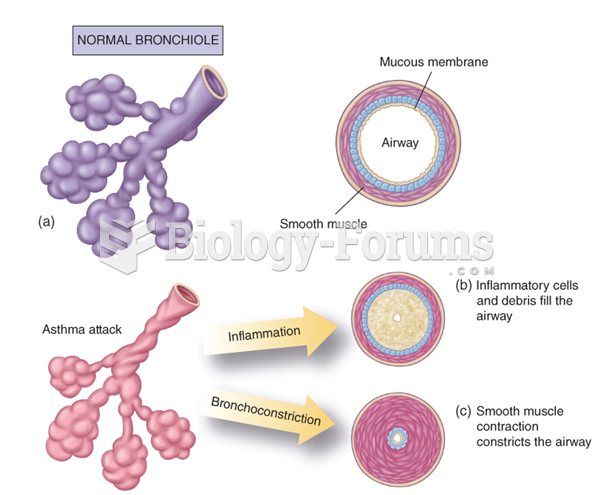|
|
|
The FDA recognizes 118 routes of administration.
In the United States, an estimated 50 million unnecessary antibiotics are prescribed for viral respiratory infections.
Vampire bats have a natural anticoagulant in their saliva that permits continuous bleeding after they painlessly open a wound with their incisors. This capillary blood does not cause any significant blood loss to their victims.
According to the American College of Allergy, Asthma & Immunology, more than 50 million Americans have some kind of food allergy. Food allergies affect between 4 and 6% of children, and 4% of adults, according to the CDC. The most common food allergies include shellfish, peanuts, walnuts, fish, eggs, milk, and soy.
Medication errors are more common among seriously ill patients than with those with minor conditions.






